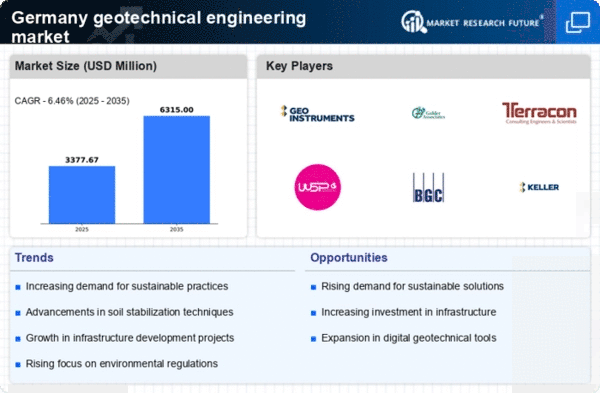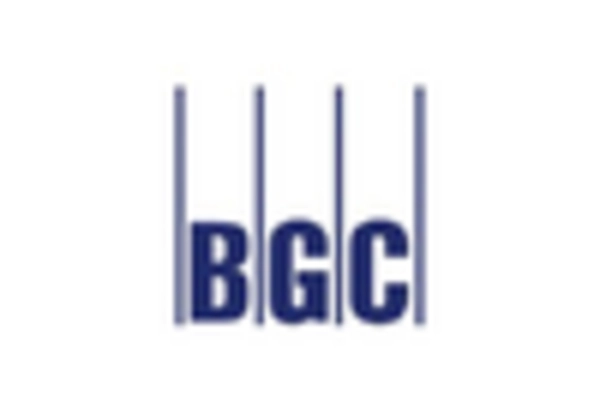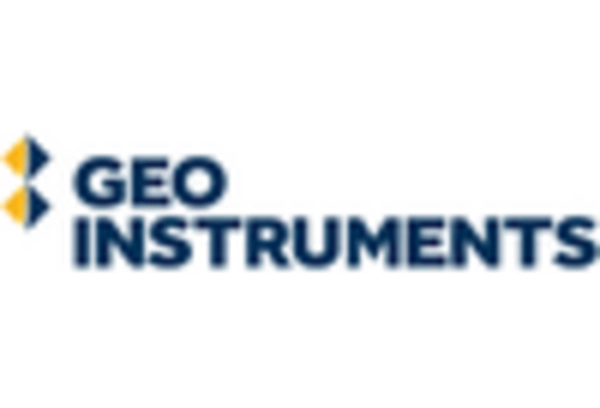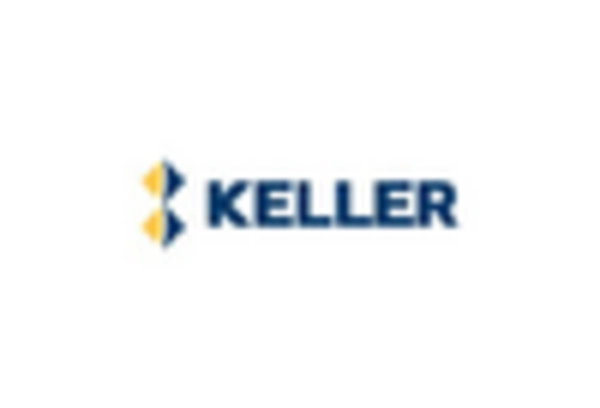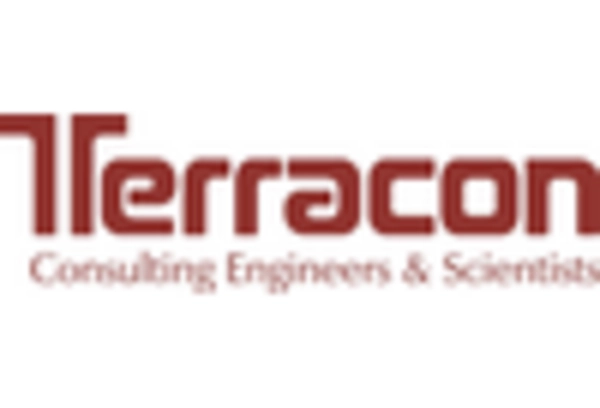Urbanization and Population Growth
Urbanization and population growth in Germany are pivotal factors propelling the geotechnical engineering market. As cities expand, the demand for residential and commercial properties increases, leading to a surge in construction activities. The population in urban areas is projected to rise by 5% over the next decade, necessitating the development of new housing and infrastructure. This trend creates a pressing need for geotechnical assessments to address challenges such as soil stability, groundwater management, and environmental impact. Consequently, The geotechnical engineering market will likely experience sustained growth as it adapts to the evolving demands of urban development.
Infrastructure Development Initiatives
The ongoing infrastructure development initiatives in Germany are a primary driver for the geotechnical engineering market. The government has allocated substantial funding, estimated at €10 billion, for the enhancement of transportation networks, including roads, bridges, and railways. This investment is expected to stimulate demand for geotechnical services, as these projects require extensive soil analysis, foundation design, and stability assessments. Furthermore, the push for modernizing existing infrastructure to meet safety and environmental standards necessitates advanced geotechnical solutions. As urbanization continues to rise, the need for reliable geotechnical engineering becomes increasingly critical, indicating a robust growth trajectory for the market.
Environmental Sustainability Initiatives
Environmental sustainability initiatives are increasingly influencing the geotechnical engineering market in Germany. The emphasis on eco-friendly construction practices and sustainable land use is prompting engineering firms to adopt innovative solutions that minimize environmental impact. Projects that incorporate green building techniques often require specialized geotechnical assessments to ensure compliance with environmental regulations. The market is witnessing a shift towards sustainable materials and methods, which could lead to a projected growth of 5% in the sector. This focus on sustainability not only aligns with national goals for reducing carbon emissions but also enhances the competitive edge of firms that prioritize environmentally responsible practices.
Regulatory Compliance and Safety Standards
In Germany, stringent regulatory compliance and safety standards significantly influence the geotechnical engineering market. The construction sector is governed by comprehensive regulations that mandate rigorous geotechnical investigations to ensure structural integrity and public safety. Compliance with the German Building Code (Bauordnung) necessitates detailed soil testing and risk assessments, which in turn drives demand for specialized geotechnical services. The market is projected to grow at a CAGR of 4.5% as companies invest in advanced technologies to meet these regulatory requirements. This focus on safety and compliance not only enhances the reputation of engineering firms but also contributes to the overall stability of the construction industry.
Technological Advancements in Geotechnical Engineering
Technological advancements are reshaping the geotechnical engineering market in Germany. Innovations such as 3D modeling, geotechnical monitoring systems, and advanced soil testing techniques are enhancing the accuracy and efficiency of geotechnical investigations. These technologies enable engineers to make informed decisions, reduce project timelines, and minimize costs. The integration of artificial intelligence and machine learning in data analysis is also gaining traction, allowing for predictive modeling and risk assessment. As these technologies become more accessible, they are expected to drive market growth, with an estimated increase of 6% in demand for geotechnical services over the next five years.


